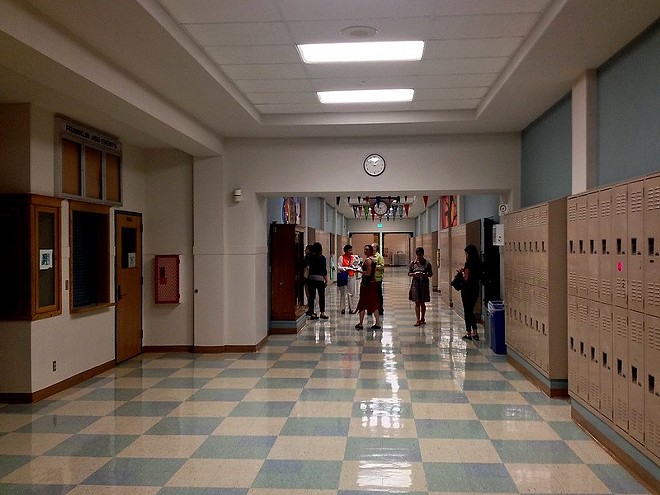While the trial of former Ohio House speaker Larry Householder will hold the attention of many this year, the battle over public school funding will also be subject to court drama.
Public school districts, some individual students in public schools, and the Ohio Coalition for Equity and Adequacy of School Funding, spent the last year fighting to keep a lawsuit on the books in Franklin County Common Pleas Court. That lawsuit aims a direct hit at Ohio’s EdChoice private school voucher program, which plaintiffs say takes away needed funding from the public schools attended by a vast majority of Ohio students.
The private school voucher system goes against the Ohio Constitution’s demand for a “thorough and efficient system of common schools throughout the state,” the schools and their advocates say.
Late in 2022, Franklin County Common Pleas Judge Jaiza Page denied attempts by the Ohio Department of Education, the state Board of Education, and a group of “Catholic school family intervenors” and other individuals, hoping to quash the lawsuit.
“Plaintiffs have adequately pleaded that the difference in funding levels has resulted in students in the public-school districts being denied adequate facilities and learning supports,” Page wrote in denying the private school advocates’ request to end the case.
The ODE and the state board argued the public school group didn’t have standing to sue, but Page rejected that argument as well, saying the problem in the case is “unique to students within the districts and is not experienced by the general public,” and could be rectified by the state.
EdChoice, first implemented in 2005, has been a point of contention for the state legislature and public/private school advocates across the state for decades, since the first time the Ohio Supreme Court deemed the state’s education funding system unconstitutional.
That case, DeRolph v. State of Ohio, was ruled on multiple times by the state’s highest court, but the rulings were the same: the state’s public school funding system doesn’t meet the requirements of the state constitution.
While both the public school advocates who filed the suit and private school supporters who discredit the case use DeRolph to argue their sides, Page found the private school supporters’ interpretation that a court does not have the authority to establish per pupil funding without merit.
“This ignores the fact that the DeRolph court held that the level of funding was unconstitutional and was a violation of the ‘thorough and efficient system’ clause,” Page wrote.
In all the decisions, the General Assembly was ordered to come up with a new system of education funding. Ohioans have yet to see a plan come to full fruition.
Another former House speaker, Bob Cupp, worked with fellow legislator John Patterson to put together an education plan that would later be called the Fair School Funding Plan. But the plan requires a six-year phase-in, something legislative leadership wasn’t willing to do when the budget came up in the last General Assembly.
“For the 2023 school year, only 33% of the Fair School Funding Plan will be funded,” Page wrote in her most recent decision in the case.
Public school students in the districts represented in the case are funded at $340, $1,700 and $2,800 per pupil, based on their grade level, in core funding from the Ohio Department of Education.
Currently, the vouchers allow students who choose to attend private schools instead of their public school district to receive $5,500 for kindergarten through eighth grades and $7,500 for high schoolers.
The program has seen expansions over the years, and with the passage of House Bill 110 in 2021, private school vouchers were directly funded through the state, rather than filtered through adjacent public school districts.
A new expansion was proposed last month, though it didn’t make it through the end of the General Assembly, and will have to be reintroduced. That could be possible in the new year with a bolstered GOP supermajority full of “school choice” advocates.
With a new budget cycle upcoming, public school advocates are hopeful more funding for the plan may be ahead, though Senate President Matt Huffman has said one priority on the topic of education for this General Assembly will be an overhaul of the entire education system in the state.
That overhaul could include a restructuring of the Ohio Department of Education and a changing of roles for the state Board of Education, which could add a layer of fog to the state’s educational future and delay funding changes as the potentially brand new department finds its footing.
The 134th General Assembly saw the legislation in the waning hours of their term, but the legislation ultimately fell short as amendments and the 2,000-page volume of the bill tripped up its success.
Meanwhile, the department and the other state education leaders named in the lawsuit have until Jan. 20 to file responses in the case.
Originally published by the Ohio Capital Journal. Republished here with permission.

